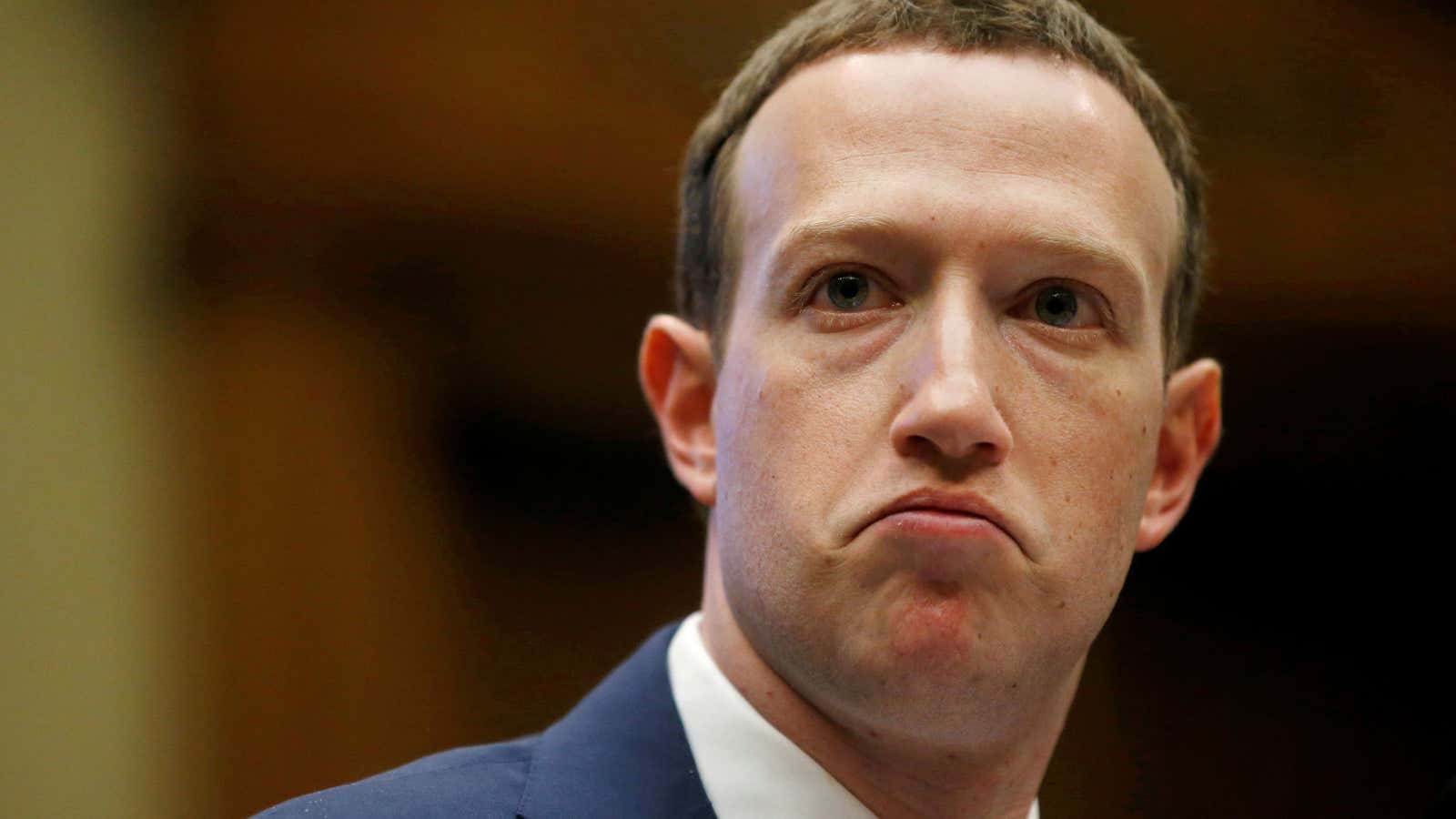The world is rapidly approaching an inflection point in financial inclusion and privacy. When Facebook announced the Libra, its new cryptocurrency, on June 18, the company said it hoped to bring billions without bank accounts into the digital economy, providing them with basic financial services through their cellphones.
Essentially, Libra’s users would access and swap a digital token, with financial institutions holding the currencies and government bonds that underpin its value. In time, the Libra—due to launch in 2020—could become a viable competitor to costly incumbent financial services companies.
Though Facebook’s initiative seems laudable on its own, US lawmakers swiftly criticized the social media giant for its continued growth, despite an ongoing antitrust probe by the House Judiciary Committee.
Maxine Waters, a Democratic representative from California and chair of the House Financial Services Committee, warned that Facebook is “continuing its unchecked expansion and extending its reach into the lives of its users.” She called for a moratorium on Libra’s development, and asked Facebook executives to testify before the committee on issues of privacy, national security, and trading risks.
Representative Patrick McHenry, the ranking Republican on the committee, echoed her concerns. “We need to go beyond the rumors and speculations and provide a forum to assess this project and its potential unprecedented impact on the global financial system,” he wrote in a letter to Waters.
What concerns the lawmakers is that Libra isn’t being developed in a vacuum. Considering Facebook’s reach—the company has 2.7 billion users across its various platforms—the Libra has worldwide consequences. While US legislation could clamp down on the Libra domestically, digital currency knows no boundaries.
European regulators are approaching the Libra with similar vigilance. In France, finance minister Bruno Le Maire asked the Group of Seven—comprised of France, Germany, Italy, Japan, the United States, the United Kingdom, and Canada—to draft a report on the cryptocurrency for its July summit. “This money will allow [Facebook] to assemble even more data, which only increases our determination to regulate the internet giants,” declared LeMaire.
Facebook says its digital wallet service—Calibra—will be a subsidiary regulated by the US government, and claims it will not use Libra data for targeted advertising. However, Facebook CEO Mark Zuckerberg’s commitment to user privacy has come under scrutiny (see: Cambridge Analytica, and the associated FTC probe).
“Despite the company’s claims to have developed more of a conscience over how it uses data, executives have suffered negligible consequences,” noted the Financial Times. “While Calibra has pledged customers’ account information will not be used to target advertising, Facebook’s record on this front gives cause for doubt.”
Still, at a European Central Bank conference in Portugal, Mark Carney, governor of the Bank of England, said he was keeping an “open mind” about the Libra. If the cryptocurrency is successful, he said, “it would instantly become systemic and will have to be subject to the highest standards of regulation.”
But even if Libra is squashed (or diminished) in developed nations, those countries are not Facebook’s focus. Libra appears to be focused on users in the developing world, and this digital currency would be a powerful tool, giving financially unstable populations access to more trusted currencies. Just think of the dollar’s popularity in a country like Venezuela, in the midst of hyperinflation.
Indeed, the real risk of catastrophe—financial or political—is in countries where the Libra would be most useful. Their governments might not be able to shut it out, and their populations may embrace the Libra out of convenience, turning over their financial lives to an internet behemoth.
Can we afford to let Facebook—or the rest of Silicon Valley’s elite—control the future of the world’s most financially vulnerable people? Is there anything we can do to stop it?
🔑🔑🔑
Bits and pieces
Facebook spoke to Fed chair Jerome Powell about the Libra (CNBC)
Ripple invested $30 million in Moneygram (Bloomberg)
The SEC and FINRA are considering whether crypto dealers can be licensed brokerages (WSJ)
India wants every message on WhatsApp to be fingerprinted (Economic Times)
“Decentralized governance” be damned, the Libra network isn’t a real blockchain (Financial Times)
Check out Libra’s white paper (Libra.org)
Please send news, tips, and privacy protections to privatekey@qz.com. Today’s Private Key was written by Matthew De Silva, and edited by Oliver Staley. Do your duty and a little more and the future will take care of itself.
